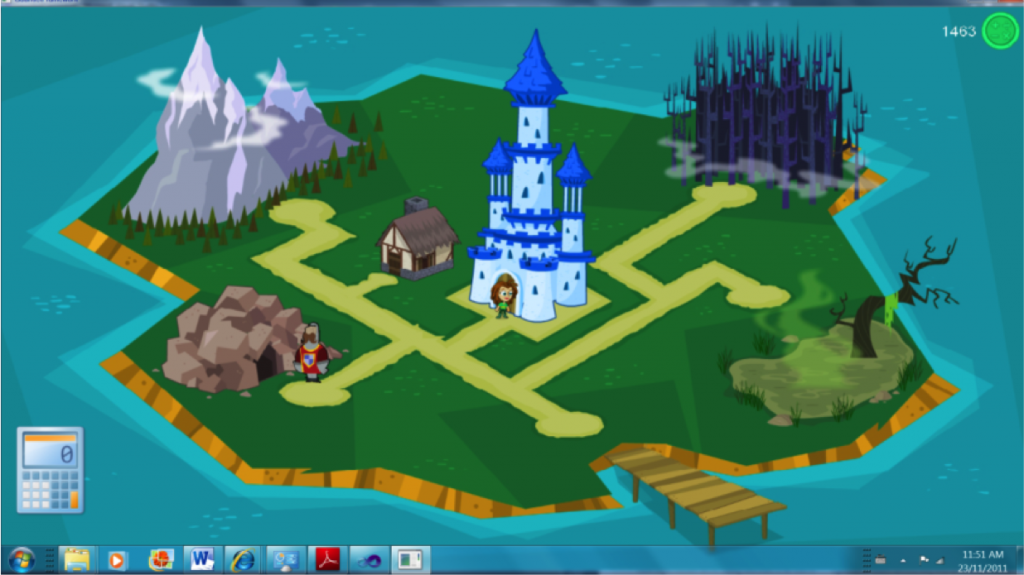Designing Educational Games and Advanced Learning Technologies:
An Identification of Emotions for Modeling Pedagogical and Adaptive Emotional Agents
by
Mirela Gutica
Abstract: Emotional, cognitive, and motivational processes are dynamic and influence each other during learning. The goal of this dissertation is to gain a better understanding of emotion interaction in order to design Advanced Learning Technologies (ALTs) and Intelligent Tutoring Systems (ITSs) that adapt to emotional needs. In order for ITSs to recognize and respond to affective states, the system needs to have knowledge of learners’ behaviors and states. Based on emotion frameworks in affective computing and education, this study responds to this need by providing an in-depth analysis of students’ affective states during learning with an educational mathematics game for grade 5-7 (Heroes of Math Island) specifically designed for this research study and based on principles of instructional and game design.
The mixed methodology research design had two components: (1) a quasi-experimental study and (2) affect analysis. The quasi-experimental study included pretest, intervention (gameplay), and posttest, followed by a post-questionnaire and interview. Affect analysis involved the process of identifying what emotions should be observed, and video annotations by trained judges.
The study contributes to related research by: (1) reviewing sets of emotions important for learning derived from literature and pilot studies; (2) analyzing inter-judge agreement both aggregated and over individual students to gain a better understanding of how individual differences in expression affect emotion recognition; (3) examining in detail what and how many emotions actually occur or are expressed in the standard 20-second interval; (4) designing a standard method including a protocol and an instrument for trained judges; and (5) offering an in-depth exploration of the students’ subjective reactions with respect to gameplay and the mathematics content. This study analyzes and proposes an original set of emotions derived from literature and observations during gameplay. The most relevant emotions identified were boredom, confidence, confusion/hesitancy, delight/pleasure, disappointment / displeasure, engaged concentration, and frustration. Further research on this set is recommended for design of ALTs or ITSs that motivate students and respond to their cognitive and emotional needs. The methodological protocol developed to label and analyze emotions should be evaluated and tested in future studies.
Defense:
When: March 17, 2014 @ 9:00 am
Where: Faculty of Graduate and Postdoctoral Studies, UBC


 Follow
Follow